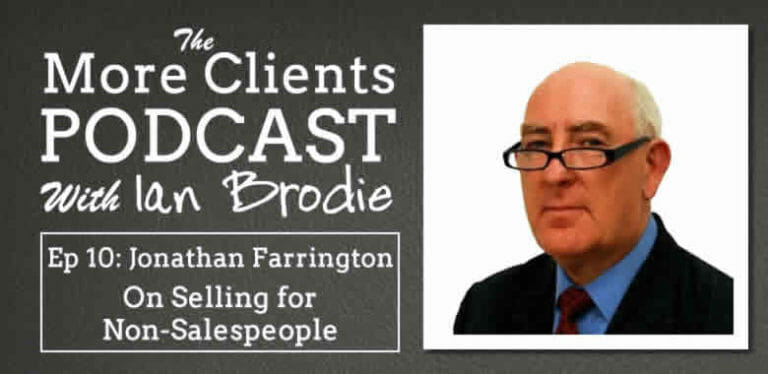More Clients Memorandum
Real authenticity
Posted on November 3rd, 2013.I sent out an email last Sunday entitled “Doorbell embarrassment”.
It told the story of how I'd been interrupted by my visiting parents when doing a webinar (and my kids were so “busy” on the xbox they didn't answer the door).
The point of the email was about how we spend so much time worrying about maintaining a professional image – yet in truth our real supporters don't care. In fact they appreciate seeing the ‘real” you.
I got more replies to that email than any I've sent out for years. All supportive. All agreeing and expanding on the point.
A lot of people used the word authentic in their reply and I think there's absolutely a growing expectation for the people we follow, interact with or buy from to be authentic. To be open and “real”.
I started thinking about authenticity, and what we can all do to be more authentic with our clients.
It's not easy.
In my field I see a lot of what I would call “scripted authenticity”. People recording “candid” videos in their back gardens with their kids rather conveniently captured on HD video with perfect sound and lighting. Or getting all weepy about their wonderful clients in a rather too perfectly written and structured sales video.
All carefully planned to have an emotional impact on you.
That kind of stuff makes my skin creep a bit. It seems to work for some people, but it's not for me.
One of the things I'm trying instead is to be transparent. I show you what's working (and not working) for me so you can apply the same lessons to your business.
Are you doing something to be more authentic in your business?

 It’s a cliché: a calendar so full of client work that you can’t take on any more work for months.
It’s a cliché: a calendar so full of client work that you can’t take on any more work for months. I'm sure you've heard analogies comparing winning clients with dating and relationships before.
I'm sure you've heard analogies comparing winning clients with dating and relationships before.